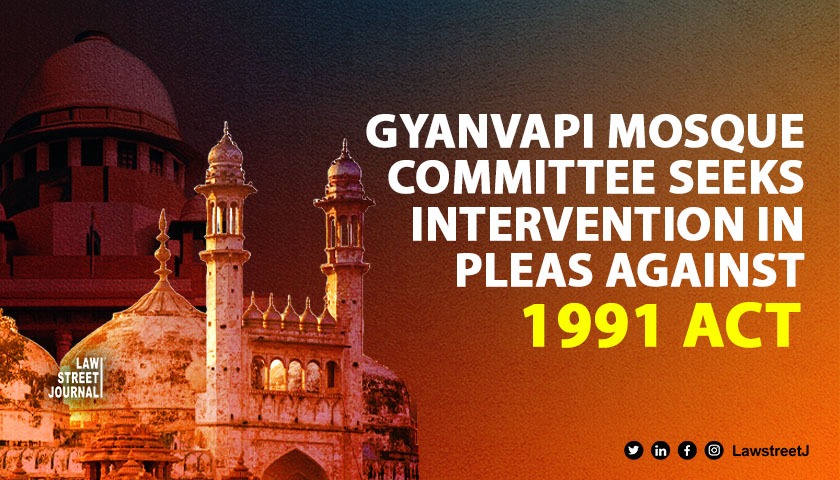NEW DELHI: The Gyanvapi mosque committee has filed an application in the Supreme Court for intervention in pleas challenging the validity of the Places of Worship (Special Provisions) Act, 1991, claiming that the consequences of the declaration sought to declare the law as unconstitutional is bound to be drastic.
“The declaration sought by the petitioner would mean such disputes rising their head in every nook and corner of the country and ultimately obliterate the rule of law and communal harmony,” it said.
Supreme Court Intervention Sought in Places of Worship Act Challenge
The application cited the recent incident in Sambhal, Uttar Pradesh, where a court permitted a survey of the Shahi Jama Masjid by allowing an application for appointment of survey commissioner the very day the suit was presented, which claimed lives of at least six citizens.
In the past few years, a number of claims have already been made with regard to various mosques/ dargahs claiming them to be ancient temples, it contended.
Gyanvapi Mosque Committee Highlights Disputes Over Iconic Religious Sites
The application also cited a number of claims made in the past few years with regard to various Mosques and Dargahs, including the Shahi Idgah Masjid at Mathura, the Quwwat-ul-Islam Mosque, Qutub Minar, Delhi, Kamal Maula Mosque, Bhojshala Complex, Madhya Pradesh, Bija Mandal Mosque, Vidisha, Madhya Pradesh, Teeley Wali Masjid, Lucknow, Uttar Pradesh, Ajmer Sharif Dargah, Rajasthan, the Jama Masjid and dargah (mausoleum) of Sufi saint Shaikh Salim Chishti at Fatehpur Sikri, Uttar Pradesh, Baba Budangiri Dargah, Hosakaoti, Karnataka.
The committee said that the mosque has been made the subject of multiple suits and the committee is therefore a crucial stakeholder in the petitions challenging the Places of Worship Act.
Also Read - Gyanvapi Mosque committee's plea against Hindu prayers in Somnath Vyas ji cellar dismissed by Allahabad HC
The committee stated that it was compelled to intervene in the case as the 1991 law was being misinterpreted and undermined through the filing of suits against mosques. The committee said that interim directions for surveys of the mosques were being sought even before the core issues were identified. The committee has relied on the Supreme Court's verdict in the Ram Janmabhoomi case to defend the validity of the Act.
A batch of petitions have been filed in the apex court challenging the Places of Worship (Special Provisions) Act, 1991, including those that question the validity of certain provisions of the law.
The apex court had first issued notice to the Centre seeking its reply to the pleas challenging the Act in March 2021. The Narendra Modi government has yet not filed its affidavit in the matter.
The applicant further claimed the petition has been filed with mischievous intent as repeated suits being filed concerning various mosques in the country are having the 1991 Act as their biggest hurdle.
The pending petition was thus meant to enable filing of such suits and also obviate the question of their maintainability, it claimed.
It also maintained the purported grievance of the petitioner as regards ancient rulers of the past cannot be addressed by this court nor is a valid ground for challenging the constitutional validity of the 1991 Act.
Also Read - SC notice to Muslim side on plea for ASI survey of area where Shivling was found in Gyanvapi Mosque
"The rhetoric arguments seeking a sort of retribution against the perceived acts of previous rulers cannot be made the basis for a constitutional challenge," the applicant said.
The committee also stated the interpretation of the 1991 Act by the five judge bench of the Supreme Court in Ayodhya case has left no manner of doubt as to the reasons for the enactment and the provisions being a core component of the principle of non-retrogression and secular values.















